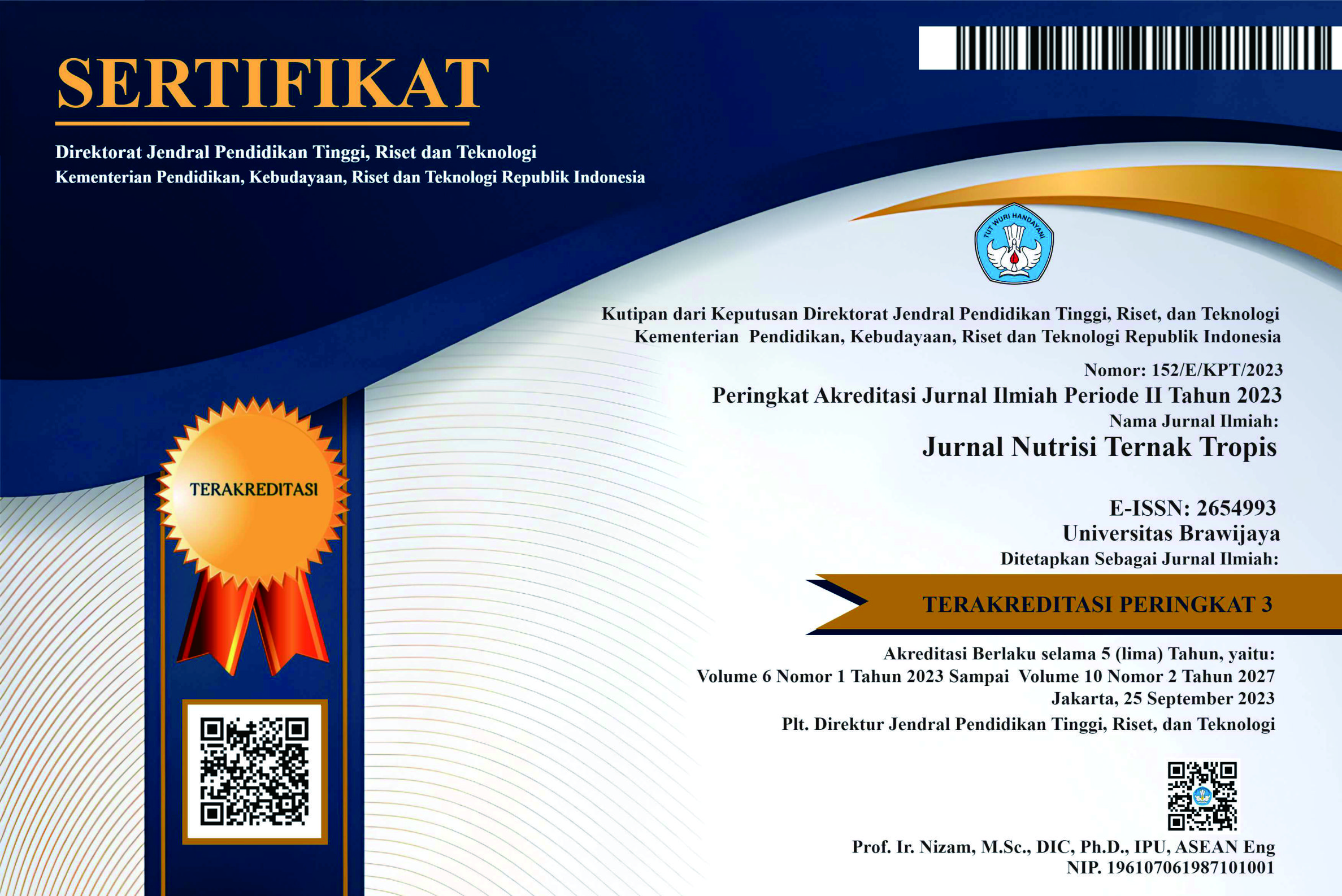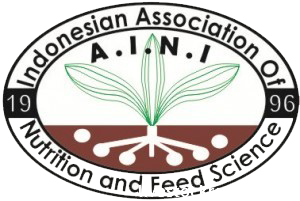Pengaruh Penambahan Pollard dan Bekatul dalam Pembuatan Silase Rumput Odot (Pennisetum purpureum, Cv.Mott) Terhadap Kecernaan dan Produksi Gas Secara In Vitro
DOI:
https://doi.org/10.21776/ub.jnt.2018.001.01.2Abstract
The purpose of this research was to evaluate pollard and rice bran in dwarf elephant grass silage (Pennisetum purpureum, cv. Mott) processing on in vitro digestibilty and gas production. The materials were dwarf elephant grass, pollard and rice bran as additives. The research was arranged in randomized block design with 4 treatments and 3 replication based on rumen liquid collection. The treatments were: dwarf elephant grass without additive (T0), dwarf elephant grass + 20% pollard (T1), dwarf elephant grass + 20% rice bran (T2), dwarf elephant grass + 10% pollard + 10% rice bran (T3). Collected data were analyzed by analysis of variance and continued with Duncan’s Multiple Range Test (DMRT). Variables measured were in vitro dry matter digestibility (DMD) and organic matter digestibility (OMD), cumulative gas production (GP) and degradability from GP residue. The result showed that the treatments didn’t significantly effect (P>0.05) on DMD and OMD but highly significant effect (P<0.01) on cumulative GP and degradability. It could be concluded that dwarf elephant grass + 20% pollard (T1) was the best treatment based on DMD (62.34%), OMD (68.18%) and supported by highly number of cumulative GP and degradability. Thus it was suggested to do further research on fiber composition and in vivo assay.
Downloads
Published
Issue
Section
License
Authors who publish with this journal agree to the following terms:
- Authors retain copyright and grant the journal right of first publication with the work simultaneously licensed under a Creative Commons Attribution License (http://creativecommons.org/licenses/by/4.0/) that allows others to share the work with an acknowledgement of the work's authorship and initial publication in this journal.
- Authors are able to enter into separate, additional contractual arrangements for the non-exclusive distribution of the journal's published version of the work (e.g., post it to an institutional repository or publish it in a book), with an acknowledgement of its initial publication in this journal.
- Authors are permitted and encouraged to post their work online (e.g., in institutional repositories or on their website) prior to and during the submission process, as it can lead to productive exchanges, as well as earlier and greater citation of published work (See The Effect of Open Access, http://opcit.eprints.org/oacitation-biblio.html).












